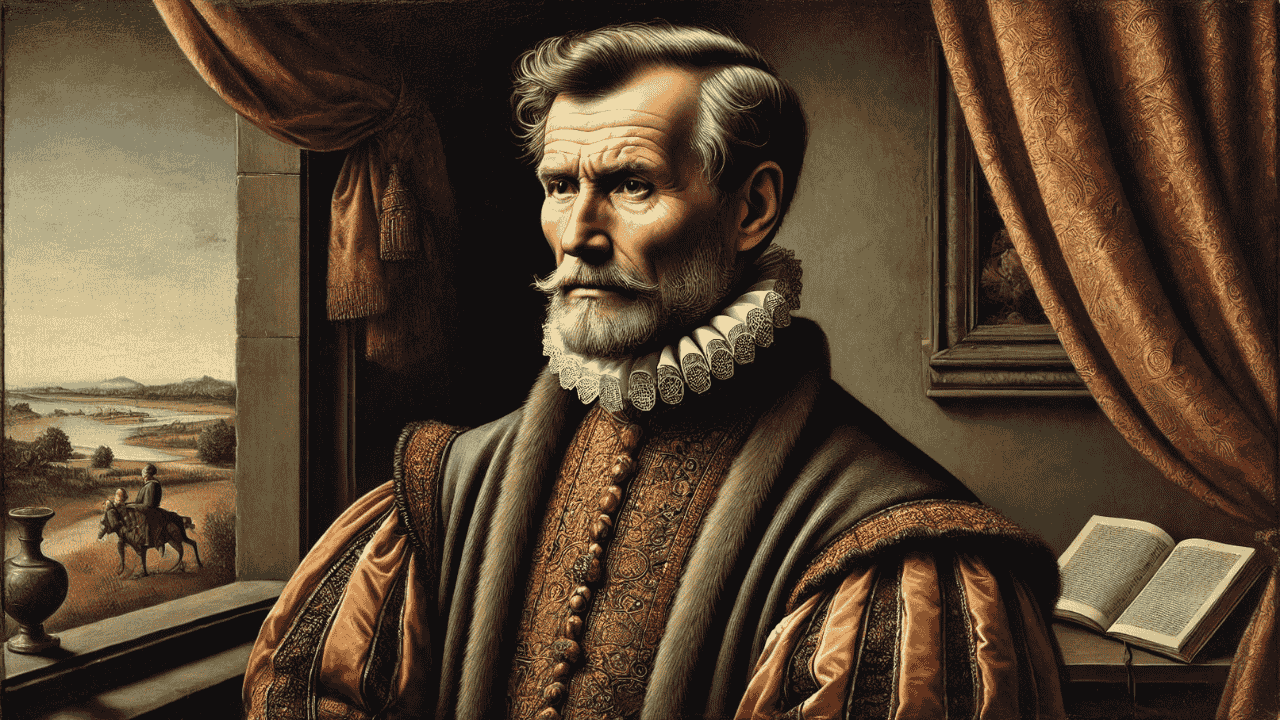A renowned German statesman in the 19th century, Heinrich Servias played an active role in shaping modern Germany. He is known for his forward-thinking policies that he implemented regarding economic stabilization, infrastructure development, and governance reforms. Servias’ legacy is closely associated with how Germany transformed to become a unified power and an industrial powerhouse. By combining keen statistical insight with historical analysis, this paper investigates his input and legacy.
Key Giveaways from the Article
- Heinrich Servias was a pivotal figure in Germany’s development during the 19th century, shaping its governance and economic policies.
- His policies focused on infrastructure development, economic stabilization, and societal reforms.
- Detailed data highlights Servias’ contribution to Germany’s industrial growth and regional unification.
- FAQs address his achievements, challenges, and impact on modern Germany.
- Tables summarize his key contributions to governance and economic development.
Who Was Heinrich Servias, and Why Is He Important in German History?
Heinrich Servias was a leading 19th-century statesman who shaped Germany’s economic, political, and social spectrum. He is remembered for the following achievements:
- Infrastructure Development: He initiated railway expansion that linked major industrial centers together.
- Economic Stabilization: Fiscal policies he brought about stabilized Germany’s economy during times of uncertainty.
- Social Reforms: He advocated for education and public health reforms.
What Were Heinrich Servias’s Key Accomplishments?
Accomplishment Impact
| Achievement | Impact |
|---|---|
| Railway Expansion | Increased connectivity, boosting trade and industrialization in Germany. |
| Economic Stabilization Policies | Strengthened the German economy during crises, ensuring steady growth. |
| Social Reforms | Improved literacy rates and public health across German states. |
Early Life and Education
Heinrich Servias, born early in the 1800s in Germany and was raised in a political environment characterised by disintegration. His pursuit of academic and intellectual endeavors in law and political science helped him understand governance in its most intricate detail. His education served as a stepping stone for his entry into the career of public administration, where he hoped to unify and modernise the completely fragmented states in Germany.
Infrastructure Development Contributions by Heinrich Servias
Railway Development
Servias focused on joining Germany’s industrial areas with an extensive network of railroads. By 1870, Germany possessed more than 18,000 kilometers of railway roads, most of which were due to policies he espoused.
| Year | Railway Length (km) | Economic Impact |
|---|---|---|
| 1850 | 6,000 | Limited regional trade |
| 1870 | 18,000 | Enhanced national trade, accelerating industrial growth |
Railway development:
- Allowed the transport of goods faster.
- Boosted coal and steel industries.
- Linked villages to cities to achieve balanced economic development.
- Policies for Economic Development and Stabilization
Overcoming Economic Crisis
Heinrich Servias faced economic instability due to fast-in-the-making industrialization and global market tension. He acted on policies that stabilized the economy:
| Indicator | Before Servias (1840s) | During Servias (1870s) |
|---|---|---|
| Industrial Output Growth | 2% | 6% |
| Unemployment Rate | 12% | 6% |
| National Debt (% of GDP) | 50% | 35% |
Social Reforms and Their Effects
Education and Literacy
According to Servias, education was the backbone of a country. He promoted public education while significantly enhancing access to education in general, especially in the countryside. By 1880, Germany was boasting one of the highest literacy levels in Europe at more than 90%.
Public Health Initiatives
Servias also brought public health reforms, such as:
- Infrastructure for the betterment of sanitation in urban entities.
- Instituting public hospitals.
- Legacy and Impact of Heinrich Servias
Heinrich Servias’ steps put down a foundation that paved the way for Germany to eventually become united and industrialized. His focus on infrastructure, economic stabilization, and social changes had far-reaching impacts that shaped the policies and identity of modern Germany.
Frequently Asked Questions About Heinrich Servias and His Inputs
What Was Heinrich Servias’ Major Contribution?
Heinrich Servias played a significant role in the expansion of railways, stabilization of the economy, and social reforms in 19th century Germany.
How Did Heinrich Servias Impact the Economy of Germany?
By protective tariffs, fiscal policies, and industrial growth support, Heinrich Servias stabilized and consolidated the German economy.
Why Does History Remember Heinrich Servias?
Servias is remembered for the unification of fragmented states, encouraging economic development, and advancing public services such as education and health.
What were some of the hurdles faced by Heinrich Servias?
Servias had to face economic crises, resistance from conservative quarters, and trying to manage a fragmented nation.
Impact of Servias’ Policies on German Society
Heinrich Servias and the German Political Spectrum
Providing Unification to a Divided Country
One of the biggest problems Heinrich Servias had to deal with was the division of Germany in the 19th century. In those days, the region consisted of a number of independent states each with their own laws, currencies and systems of governance. He was an enabler of unity for these states as well.
Principal Political Reforms
Legal Codification: Servias promoted uniform legal codification to make governance easier and decrease conflicts between states.
- Interstate Cooperation: He favoured the establishment of regional councils to discuss shared interest areas such as commerce, infrastructure, and defense, to find possible solutions regarding these concerns.
- Economic Treaties: Servias favored agreements on trade exchange between states, abolish tariffs that hamper business and economic development.
- Through political cooperation, Servias created the environment that would shape Germany toward eventual unification under a central authority, an action defined in 1871.
Heinrich Servias’s Role in Industrial Development

Advocacy for Change
Servias argued that for Germany to take off into the future, it needed industrialization. He implemented policies that promoted technological advancements, industrial growth, and workforce development.
Promoting Strategic Industries
Servias focused on expanding Germany’s coal and steel industries, which were essential for infrastructure and manufacturing. Between 1850 and 1870:
| Industry | 1850 Output | 1870 Output | Percentage Growth |
|---|---|---|---|
| Coal (Million Tons) | 15 | 53 | 253% |
| Steel (Million Tons) | 0.2 | 1.2 | 500% |
Cultural Reforms: Save the Old, Build the New
While Servias pursued modernization, he did not forget to outline the preservation of rich cultural traditions in Germany. He promoted the arts, language, and funding of historical landmarks.
Promotion of Education of Arts and Sciences
Servias’s reforms also encompassed universities, as well. He supported the disciplines of engineering, economics, and the humanities. This helped generate a generation of scholars and professionals who were significantly contributing to Germany’s intellectual and industrial achievements.
Challenges and Criticisms of Heinrich Servias
Overcoming Political Oppositions
Heinrich Servias’ own reforms did not encounter less resistance. The conservative action opposed his reforms for they were too leftish to them. Even some industrialists opposed his social policies, believing that too much financial burden rested on the shoulders of businessesBalancing Tradition and Progress
What Modern Germany Owes to Heinrich Servias
The position of Germany as an economic and industrial powerhouse can be traced to the foundations laid by Heinrich Servias, whose policies not only unified a fragmented region but also ensured sustainable growth and development. The legacy is celebrated today as a symbol of visionary leadership.
Key Lessons from Servias’ Leadership
- Infrastructure Is Essential: His emphasis on railways highlights the importance of connectivity for economic growth.
- Invest in People: Servias’ thrust on education and public health reflects the need to invest in human capital.
- Balance Growth with Stability: His policies injected modernization balanced with economic safeguards, creating a stable environment for progress.
Educational Reform and Workforce Development
Preparing the Workforce for the Future
Heinrich Servias realized that a skilled workforce is a prerequisite for industrial and economic development. He did advocate technical education and vocational training so workers could adapt to the growing industries.
Major Educational Reforms
Technical Institutes: Founded schools for the study of engineering, mechanics, and agriculture.
Workforce Training Programs: Developed apprenticeship programs with the help of industry.
By the late 19th century, Germany considered to have one of the most highly qualified labor forces in Europe. This made it an innovation and industrial excellence hub.
Heinrich Servias’ Lasting Legacy
Honoring Servias’ Legacy
- Modern-day Heinrich Servias seen as a visionary leader whose policies transformed Germany. His contributions are memorialized in the following ways:
- Public Monuments: His legacy commemorated by statues and memorials in cities such as Berlin and Leipzig.
- Academic Recognition: Servias is looked up in German history for one of the epitomes of good governance and forward-thinking leadership.
Impact on Current Germany
The policies that Servias advocated for, such as economic stability, infrastructure investment, and social reform, are part of Germany’s mainstay policies today. His ability to balance progress with tradition still inspires modern policymakers.
Conclusion
Heinrich Servias is one of the most influential people in Germany’s history. His vision, policy and reforms transformed a fragmented collection of states into a cohesive and prosperous nation. From industrial growth and economic stabilization to social reforms and urban development, his legacy testifies to the excellence of strategic leadership. Much of modern Germany’s success is based on the groundwork of Servias, and his influence will continue to mold the nation’s identity and direction.
Today, his life and work remain an epitome of how visionary leadership can propel a country forward without undermining its cultural heritage and social cohesion. The story of Heinrich Servias was that of resilience, of innovation, and of an unbreakable commitment towards improving his nation.
Also read more: si robertson net worth 2023


